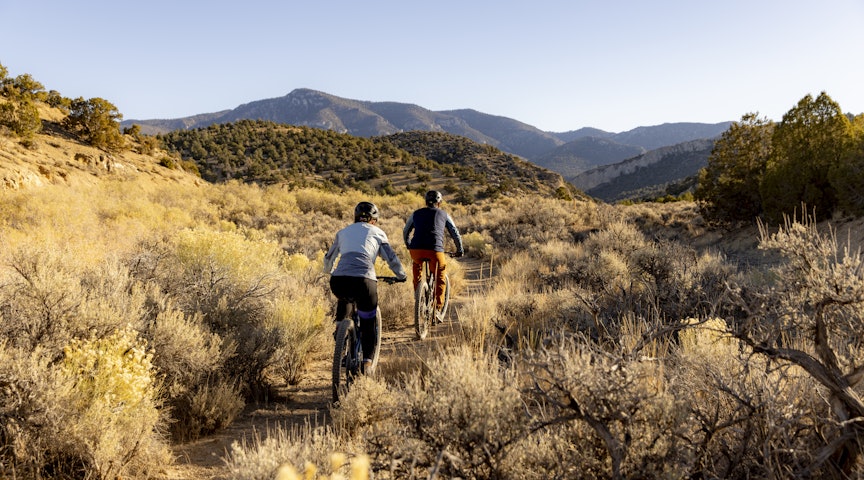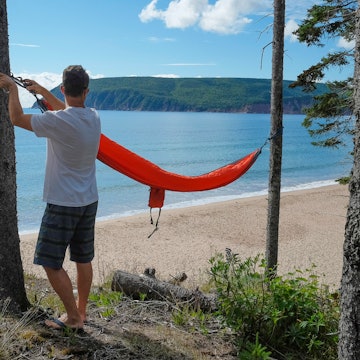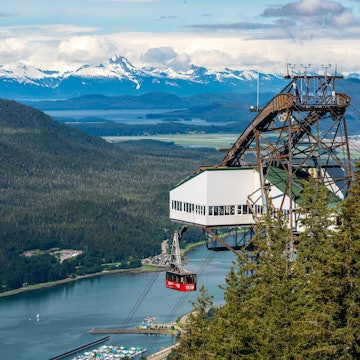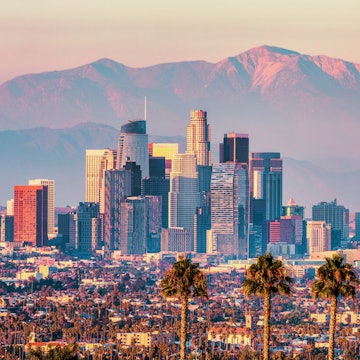

Count on traveling with your own tent to avoid pricey Alaska hotels © Patrick J. Endres / Getty Images
Let’s be honest: Alaska isn’t exactly a budget destination.
But with some creative planning and an ability to trade luxury for a grittier experience, a trip (way) up north doesn’t have to destroy your bank balance. The good news is that an entry ticket to Alaska’s astonishing wilderness is refreshingly gratis: hiking and backcountry camping are invariably free of charge, and you don’t need to charter a floatplane to view majestic wild animals. If you’re lucky, you can even glimpse bears and moose through a bus window on the Seward Hwy, or even during an afternoon jog in Anchorage.
Read on for a primer to daily costs in Alaska, plus a few tricks and tips to help you save money in the Last Frontier.
Daily costs
Hostel room: $30–45 (dorm bed)
Basic room for two: $150–200
Self-catering apartment (including Airbnb): from $130
Public transport ticket Anchorage–Seward (127-miles): $69–85 one-way
Coffee: $4–4.50
Sandwich: $8–9
Dinner for two: $60–80
Beer/pint at the bar: $6–7
Visit in May or September for savings
Alaska’s tourist season runs from early May to late September – but if you avoid the high summer months of June, July and August and book well in advance, you can save a decent amount on accommodations, flights and organized day trips. Indeed, if you’re adept at being self-sufficient and aren’t averse to a little rain (and occasional snow), then April is a passable month in the balmier Alaskan Panhandle. The state’s tough winters are (relatively) inexpensive, but only endurable if you’re a hardened local or an adventure extremist.

Make the most of Alaska’s national parks and historic parks
Entry to Alaska’s eight national parks is mostly free, and the only park that charges an entry fee is Denali ($15 for a seven-day pass). The caveat? Most of the state’s parks are remote and require expensive boat or airplane transfers. Denali and Kenai Fjords are exceptions: both are easily reachable from Anchorage by car, bus or train, and offer multiple free attractions, including glacier viewing, wildlife watching, hiking and camping.
Alaska’s two main historic parks – Sitka and Skagway – are also fabulous and free. Stuffed with museums and heritage sites and offering complimentary walking tours with park rangers in the summer, they’re perfect places to absorb the state’s surprisingly eclectic history and culture.
Flying is generally the cheapest way to get to Alaska
Book well in advance for the best flight deals. For drivers motoring up through Canada from the Lower 48, costs will vary depending on type of vehicle, gas prices (which are higher in Canada) and travel distance.
Anchorage hotels usually offer free shuttles to and from the airport
Organize these in advance through your accommodations, or call on arrival at Ted Stevens International Airport using the complimentary phones in the terminal building.
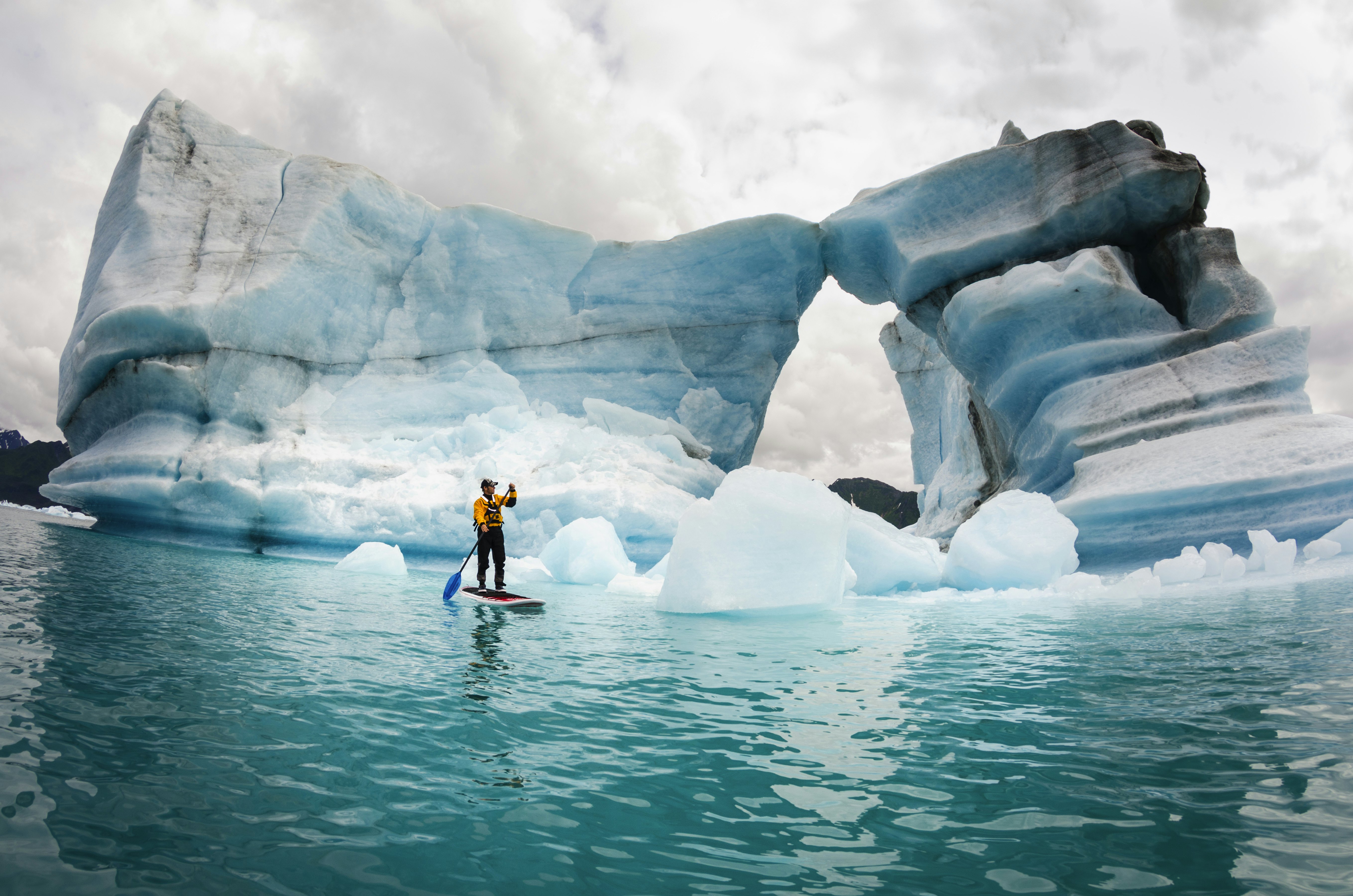
Choose your location wisely to avoid costly internal flights
Avoid expensive internal flights by staying near the grid of main roads. The compact, easily navigable Kenai Peninsula, one hour south of Anchorage by road or rail, is full of classic Alaskan splendor, including glaciers, mountains, and steep-sided fjords. Seward, 127 miles from Anchorage, is an ideal base. To the north, the Anchorage–Fairbanks corridor is bisected by the scenic, well-maintained George Parks Hwy and supports the artsy community of Talkeetna and the fauna-filled expanses of Denali National Park.
Rates of bed tax vary depending on the town or city
There is no state sales tax in Alaska, which takes the edge off some purchases. But before you start dreaming of decadent nights in five-star hotels, take note that most accommodations have a combined city sales/bed tax of between 5% and 15%. You can shave a little of your room bills by avoiding high-tax towns like Ketchikan (14% tax) in favor of lower-tax havens like Fairbanks and Skagway (8%) or – better still – Nome and Valdez (6%).
Consider staying in a hostel or a cabin over a hotel
Accommodation in Alaska is expensive, full stop. Even motels will cost you, and the diminutive nature of most towns means there’s often little opportunity to shop around. Still, tourist-oriented towns usually have at least one hostel offering dorm beds from $30 per night.
Another option is cabins. Alaska has an abundance of basic public-use cabins in state parks and its two national forests, Chugach and Tongass. Many of them are hike-in, while others can be reached by kayak. Cabins generally sleep between three and eight people and can cost as little as $25 per night all-in, although $60 to $70 is more common. While designs vary, most have wooden sleeping platforms, stoves, pit toilets, tables and access to a nearby water source. Pre-booking is essential.

Travel with a tent or an RV
In a land teeming with adventure possibilities, camping is a popular option. Campgrounds abound, with nightly fees ranging from free to $20 for rustic public campgrounds and from $30 to $45 to park your RV in a deluxe private camp with full hookup and heated restrooms with showers. Many towns that cater to tourists operate a municipal campground. Book ahead in peak season, especially for weekends. For hardcore hikers with plenty of outdoor experience, backcountry camping is mostly free.
Weigh your transport options
Average daily car rental rates are $100 to $150 during Alaska’s summer season. Before committing to a vehicle, it pays to work out how much you’re likely to need it. Gas prices in Alaska are cheaper than Europe but still $0.40 per gallon above the US average. Conversely, bus fares can be surprisingly affordable. The Anchorage–Seward run costs as little as $69 one-way; Anchorage–Denali goes for around $105.

Wildlife watching can be done from the road
Costing about $50 round trip, a simple bus ride along Denali’s 92-mile Park Rd pretty much guarantees the sight of a whole food chain of foraging fauna. By comparison, a fly-in day trip from Anchorage to Katmai National Park to view bears snapping salmon out of Brooks Falls can cost over $1000.
Note: As of 2024, buses can only go as far as Mile 43 on Park Rd due to construction work following landslides.

Take the public ferry instead of a cruise ship
Known as the Alaska Marine Highway, the extensive state-run ferry network cuts through the same spectacular landscapes as the cruise ships but at a far more reasonable price. This is especially true if you’re willing to swap a cabin for sleeping in your seat or even pitching a tent on deck (bring plenty of duct tape to secure against gusts of wind). A fare for the 19-hour journey between Ketchikan and Juneau will set you back around $140. For the six-hour hop across Prince William Sound between Whittier and Valdez, you’re looking at approximately $65.
Opt for a shoulder season or “repositioning” cruise
Alaska’s cruise season runs a short five months, with the bookend months of May and September offering the best deals. You can save good money – sometimes as much as 50% – by embarking on a “repositioning” cruise, which takes the boat to and from its home port (eg Alaska–Hawaii, Alaska–California) at the beginning and end of the season. Big ships are more economical than smaller boats. Carnival is one of the cheapest options.
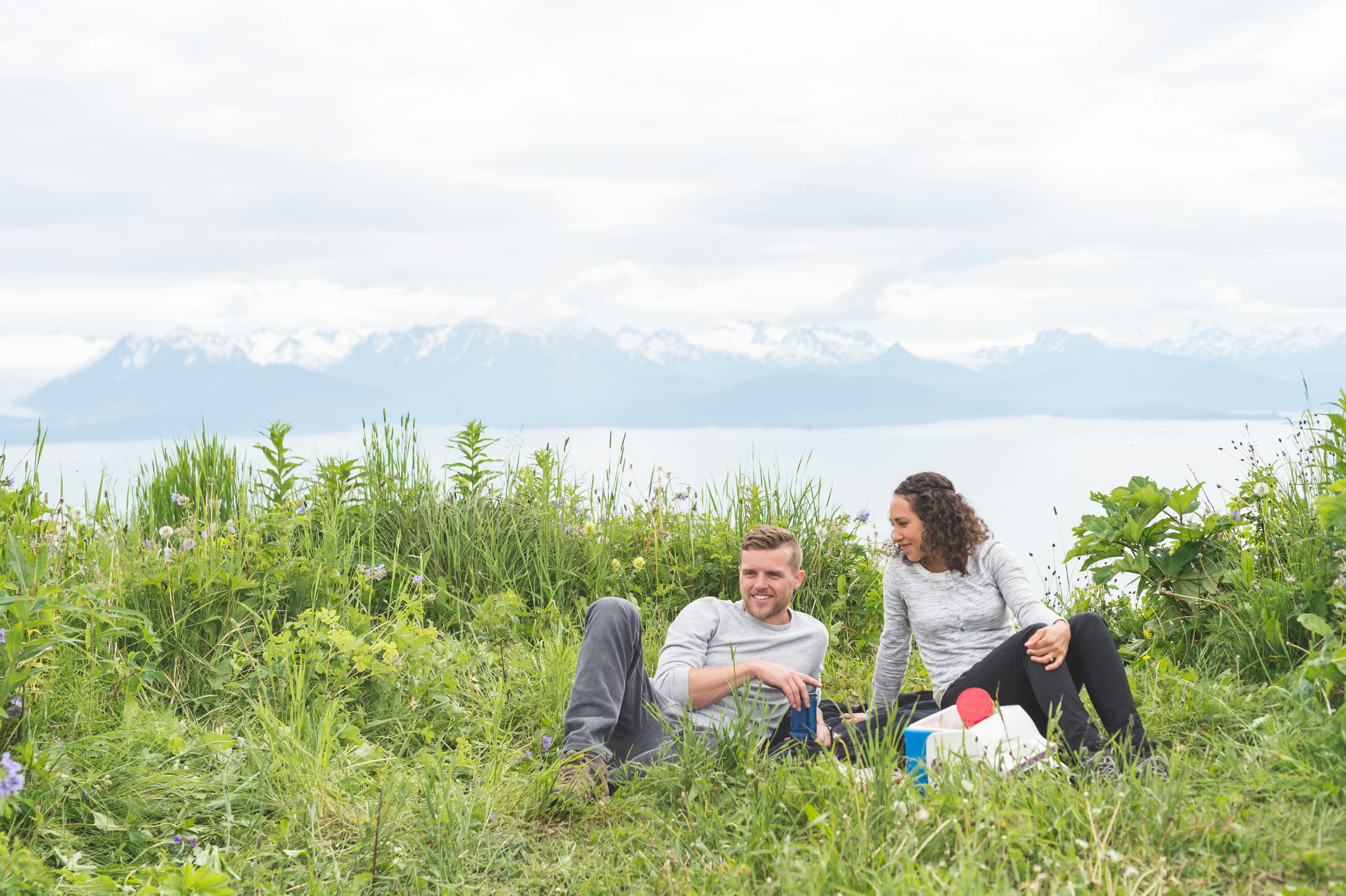
Master the picnic
Cheechakos (newcomers to the state) pulling up a chair in their first Alaska restaurant usually glance incredulously at the menu – and contemplate a three-day fast. Eating out can be prohibitively expensive in the Last Frontier because of the short tourist season and high labor costs for wait and kitchen staff. Yet many travelers are equally surprised that food prices in Fairbanks and Anchorage supermarkets are not that much higher than home.
The solution: cobble together a picnic lunch (ideal when for when you’re hiking), make your own dinners in your campsite or RV, or book accommodation with a kitchen or kitchenette. Eating out needn’t be banished altogether – Alaska halibut deserves at least one outing – but you might want to make it more an exception than a rule.
Hiring guides, outfitters and tour companies can add up fast
Local experts cost money – but they also provide security, local knowledge and peace of mind in Alaska’s often hostile wilderness. Still, with pre-trip homework and the right equipment, it is possible to organize hiking, biking or kayaking trips on your own. Remember that for safety reasons, it’s always best to travel with a partner or in a group; day hikes are a good option if you’re not mega-experienced. Try Flattop Mountain near Anchorage or the Perseverance Trail out of Juneau.
Here's more expert advice to help you plan your trip to Alaska:
Consider any of these great places to visit
Know these 14 things before you go
These road trips will take you to all the highlights in Alaska
Take your United States (USA) trip with Lonely Planet Journeys
Time to book that trip to United States (USA)
Lonely Planet Journeys takes you there with fully customizable trips to top destinations – all crafted by our local experts.
